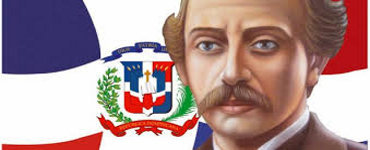Every year, on January 26, the Dominicans remember the birth, life and legacy of Juan Pablo Duarte. His pro-independence ideals led to the declaration of a free Republic, independent of any outside power on February 27, 1844. Together with other patriots, he formed the La Trinitaria secret society, whose essential goal was to liberate us from the Haitian regime which kept us enslaved.
Juan Pablo Duarte y Díez was born in Santo Domingo on January 26, 1813. Together with Francisco del Rosario Sánchez and Matías Ramón Mella, he is one of the Founding Fathers of the Dominican Republic.
Duarte was the son of Manuela Díez, an El Seibo native with a Spanish father and Dominican mother, and Juan José Duarte a prosperous Spanish businessman.
On July 16, 1838, Juan Pablo Duarte founded the La Trinitaria Secret Society alongside Juan Isidro Pérez, Pedro Alejandro Pina, Jacinto de la Concha, Félix María Ruiz, José María Serra, Benito González, Felipe Alfau and Juan Nepomuceno Ravelo.
He established two more entities for his public activities: The Philanthropic Society and The Dramatic Society, intended to carry out important propaganda work through the staging of theatrical pieces. Duarte and some of his comrades also joined the Dominican companies of the Haitian army in order to acquire military skills.
Duarte headed the movement in the city of Santo Domingo, playing a decisive role which made him the main political leader of the Dominicans. But aware of the pro-independence activities of the Trinitaria group, Herard, the new president, led a military occupation of the Dominican provinces with the objective of breaking up the separatist leadership.
Matías Ramón Mella, the Ramón brothers and Pedro Santana were arrested and taken to Haiti, while Francisco del Rosario Sánchez went into hiding and spread rumors of his death.
Juan Pablo Duarte died on July 15, 1876 in Caracas, Venezuela. His remains were returned to Dominican soil in 1884 by the government of Ulises Heureaux (Lilís), which had declared him Founding Father, along with Francisco del Rosario Sánchez and Matías Ramón Mella.

